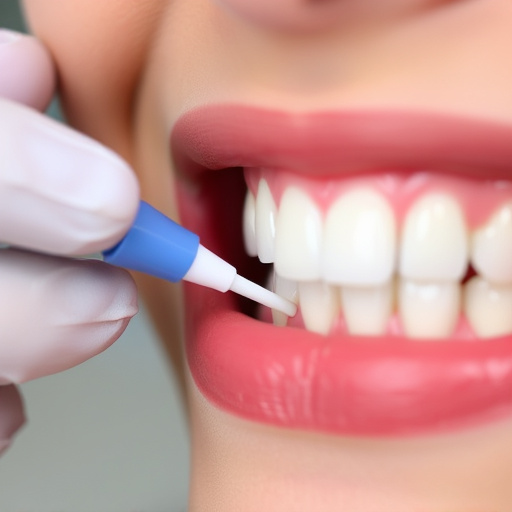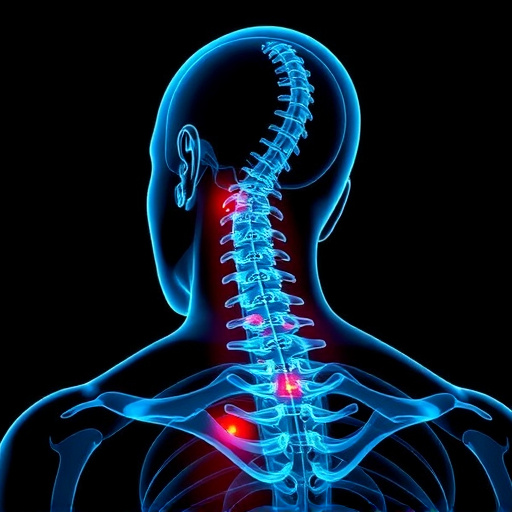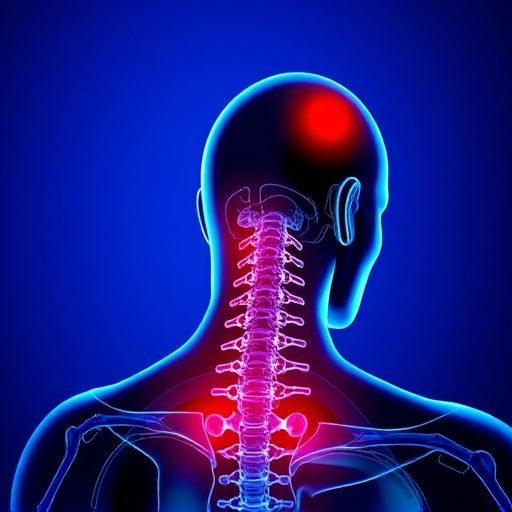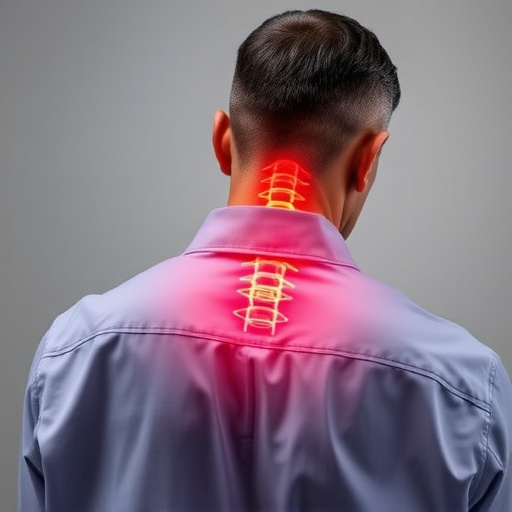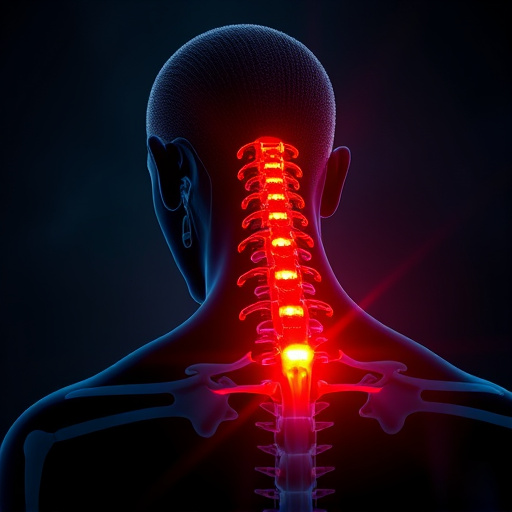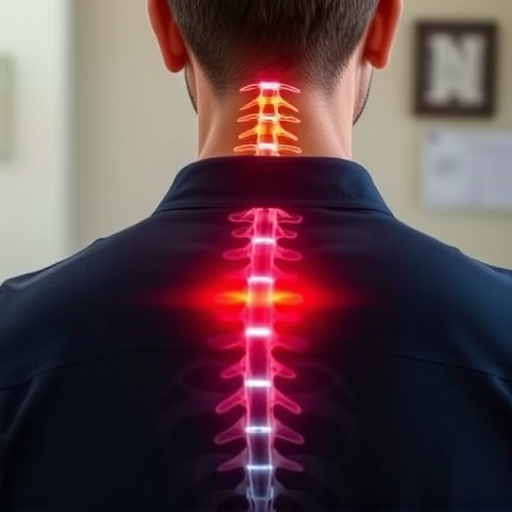A herniated disc results from damage to intervertebral discs, causing nerve compression and pain. Aging and injuries like whiplash are common causes. A whiplash treatment specialist offers effective non-surgical options including physical therapy, chiropractic adjustments, acupuncture, and lifestyle changes. These treatments aim to reduce pain, strengthen muscles, improve spinal alignment, and prevent further damage without invasive procedures.
“Discover non-surgical solutions for herniated discs, a common yet painful condition. This comprehensive guide explores effective treatments beyond surgery, empowering you with knowledge about your options. From understanding the root causes and symptoms to delving into specialized care like whiplash treatment from certified specialists, we cover it all. Learn about physical therapy, alternative therapies such as chiropractic and acupuncture, and essential lifestyle changes for long-term disc health.”
- Understanding Herniated Discs: Causes and Symptoms
- Non-Surgical Treatment Options: A Comprehensive Overview
- The Role of a Whiplash Treatment Specialist
- Physical Therapy and Exercise for Disk Healing
- Alternative Therapies: Exploring Chiropractic and Acupuncture
- Lifestyle Changes and Self-Care for Long-Term Relief
Understanding Herniated Discs: Causes and Symptoms

A herniated disc occurs when the soft, gel-like material inside an intervertebral disc pushes through a tear in its outer layer. These discs act as cushions between the vertebrae in your spine, providing flexibility and shock absorption. When a disc becomes herniated, it can put pressure on nearby nerves, leading to pain, numbness, or weakness that may radiate to other parts of the body.
Common causes include aging, where the discs gradually lose their water content and become less flexible, and injury, particularly from whiplash-type accidents or heavy lifting. Symptoms vary depending on the affected area, but often include back or neck pain, sciatica (leg pain that radiates from the hip down), and arm or shoulder discomfort. A whiplash treatment specialist can help manage symptoms through non-surgical methods like physical therapy, medication, and alternative treatments tailored to the individual’s condition.
Non-Surgical Treatment Options: A Comprehensive Overview

Non-surgical treatment options for herniated discs offer a promising alternative to invasive procedures, especially for those seeking a whiplash treatment specialist. These methods focus on alleviating pain and restoring function without incisions or extended recovery periods. Physical therapy is a cornerstone of non-surgical care, targeting specific exercises to strengthen the back and core muscles, improve posture, and enhance flexibility. This approach can significantly reduce disc pressure and prevent further damage.
Additionally, specialized treatments like spinal manipulation and chiropractic adjustments have shown effectiveness in managing herniated discs. These techniques aim to restore proper alignment and mobility of the spine, providing pain relief and promoting the body’s natural healing processes. Moreover, certain medicinal interventions, such as steroid injections, can reduce inflammation and numb affected areas, offering temporary but potent relief for individuals seeking a whiplash treatment specialist without surgery.
The Role of a Whiplash Treatment Specialist
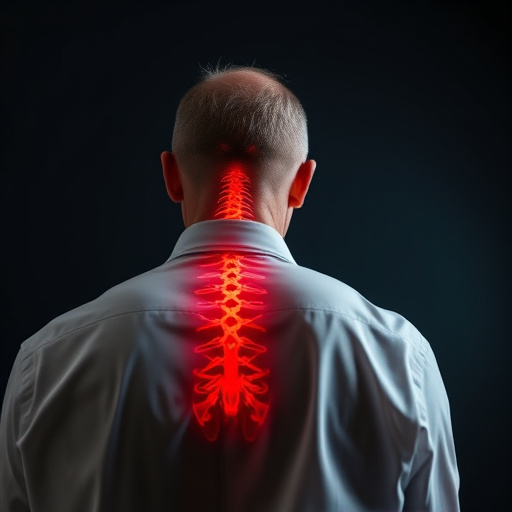
A whiplash treatment specialist plays a crucial role in addressing herniated discs without surgery. These experts are trained to diagnose and develop personalized treatment plans, focusing on conservative methods to alleviate pain and improve spinal health. By utilizing techniques such as manual therapy, physical rehabilitation, and specific exercises, specialists aim to reduce inflammation, restore disc height, and enhance overall mobility.
Their expertise lies in navigating the complex interplay between whiplash injuries and herniated discs. They consider factors like the severity of the injury, individual patient history, and the specific characteristics of the herniation. Through advanced assessment tools and a holistic approach, these specialists tailor treatments to offer effective non-surgical solutions for patients seeking relief from herniated disc pain without undergoing invasive procedures.
Physical Therapy and Exercise for Disk Healing

Physical therapy plays a crucial role in non-surgical herniated disc treatment, offering tailored exercises and techniques to promote healing and alleviate pain. A whiplash treatment specialist can design a personalized program focusing on strengthening core muscles and improving spinal stability. Targeted exercises may include stretching, flexibility routines, and specific movements to reduce pressure on the affected disc.
Regular sessions with a physical therapist provide guidance and support, ensuring patients perform exercises correctly. This expert care helps accelerate the natural healing process, reduces inflammation, and improves overall spinal health. By combining targeted therapy with patient education, individuals can effectively manage symptoms and prevent future injuries, avoiding the need for more invasive procedures.
Alternative Therapies: Exploring Chiropractic and Acupuncture
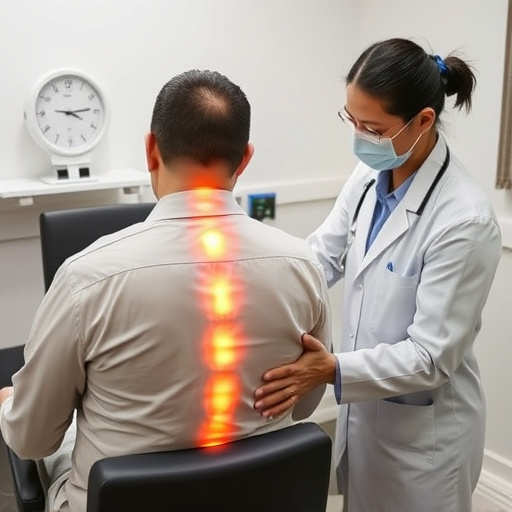
Chiropractic care and acupuncture are two popular alternative therapies gaining recognition as effective non-surgical treatments for herniated discs, often sought by whiplash treatment specialists. Chiropractic focuses on adjusting and manipulating the spine to reduce pressure on affected nerves, providing pain relief and improving mobility. This hands-on approach has been shown to be beneficial for disc-related issues, offering a natural way to manage symptoms without invasive procedures.
Acupuncture, an ancient practice, involves inserting thin needles at specific points to stimulate the body’s natural healing response. It targets not only the spine but also associated muscle groups and organs, promoting blood flow and releasing endorphins, the body’s natural painkillers. Many patients find acupuncture a gentle yet powerful tool in their recovery journey, often recommended by whiplash treatment specialists as a complementary therapy alongside chiropractic care.
Lifestyle Changes and Self-Care for Long-Term Relief
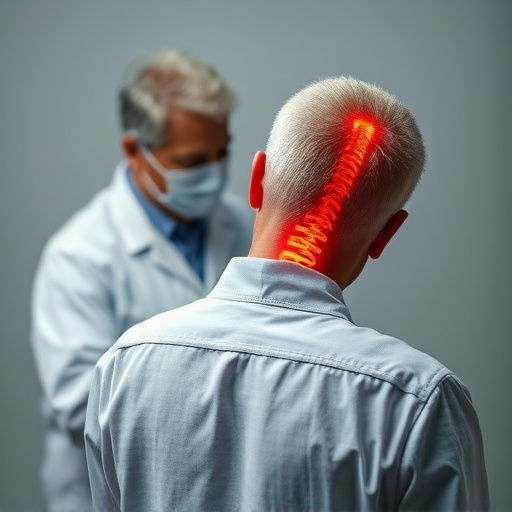
For long-term relief from a herniated disc, lifestyle changes and self-care are essential components alongside any medical treatment. Incorporating strategies like regular exercise (approved by your whiplash treatment specialist) strengthens back and abdominal muscles, providing better support for your spine. Maintaining good posture during daily activities prevents further strain on affected areas. Additionally, managing stress through relaxation techniques like yoga or meditation can help reduce muscle tension and promote healing.
Proper sleep hygiene is another crucial aspect of self-care. Using supportive bedding and maintaining a consistent sleep schedule allows your body to repair and rejuvenate. Avoiding heavy lifting and sudden movements without proper technique also minimizes the risk of exacerbating the condition. A whiplash treatment specialist can guide you in tailoring these strategies to your specific needs, fostering long-lasting relief from herniated disc discomfort.







